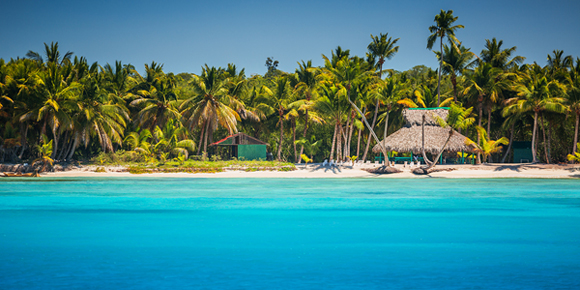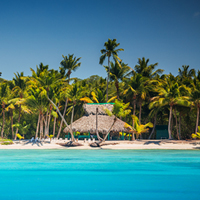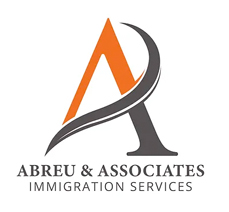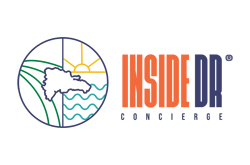Punta Cana, the Dominican Republic
Last updated on Apr 01, 2025
Summary: Expats, digital nomads and retirees talk about what it is really like living in Punta Cana, Dominican Rep. They offer advice about meeting people, cost of living, finding a home and more.

What do I need to know about living in Punta Cana?
When we asked people what advice they would give someone preparing to move to Punta Cana, they said:
"Before retiring in Punta Cana, Dominican Republic, expats should know that the cost of living is generally lower than in many Western countries, but it can vary depending on lifestyle. They should also be aware that the official language is Spanish, so learning the language can be beneficial. Healthcare in Punta Cana is of a good standard, with private hospitals and clinics available, but it's advisable to have comprehensive health insurance. The climate is tropical, with warm temperatures year-round, but it can be prone to hurricanes between June and November. Expats should also know that the Dominican Republic has a residency program for retirees with pensions, which can make the immigration process easier. Safety can be a concern in some areas, so it's important to research and choose your location carefully. The culture in Punta Cana is laid-back and friendly, with a strong emphasis on family and socializing. Public transportation is available but can be unreliable, so many expats choose to drive. However, driving standards can be different than what expats are used to. Finally, it's important to understand the local customs and etiquette, as well as the country's laws and regulations, to ensure a smooth transition to life in Punta Cana," wrote one member in Punta Cana.
 Abreu & Associates Immigration Services
Abreu & Associates Immigration Services Connect
Abreu & Associates is a law firm practicing exclusively in the area of the Dominican Republic Immigration process and Nationality law. The firm serves as a trusted advisor in all practice areas of immigration law including Visa, Provisional Residency, Permanent Residency, Renewals, Investment Management, Dominican and American Citizenship, and Dominican Driver's License.
Click connect to have our partner contact you via e-mail and/or phone.
 Abreu & Associates Immigration Services
Abreu & Associates Immigration Services Abreu & Associates is a law firm practicing exclusively in the area of the Dominican Republic Immigration process and Nationality law. The firm serves as a trusted advisor in all practice areas of immigration law including Visa, Provisional Residency, Permanent Residency, Renewals, Investment Management, Dominican and American Citizenship, and Dominican Driver's License.
Connect
Click connect to have our partner contact you via e-mail and/or phone.
What do I need to know before moving to Punta Cana?
When we asked people what advice they would give someone preparing to move to Punta Cana, they said:
"Before moving to Punta Cana, expats should know that Spanish is the official language, so learning some basic phrases can be beneficial. The cost of living is relatively low compared to many Western countries, but imported goods can be expensive. The local currency is the Dominican Peso, but US dollars are widely accepted. Healthcare facilities in Punta Cana are of a good standard, but it's recommended to have comprehensive health insurance. The tap water is not safe to drink, so bottled water is the norm. The climate is tropical, with high temperatures and humidity throughout the year, and a hurricane season from June to November. Punta Cana is a popular tourist destination, so it can get crowded during peak travel seasons. The local cuisine is a mix of Spanish, African, and Taino influences, with dishes featuring rice, beans, meat, and seafood. The city is generally safe, but like any place, it's important to be aware of your surroundings and take precautions against petty crime. Public transportation is not very reliable, so many expats choose to rent or buy a car. The real estate market offers a variety of options, from luxury villas to more modest apartments. Finally, it's important to understand the local customs and traditions, as Dominicans are known for their friendly and hospitable nature," remarked one expat living in Punta Cana, the Dominican Republic.
How do I find a place to live in Punta Cana?
We asked expats how they chose their neighborhood and found a place to live. They answered:
"Finding a place to live in Punta Cana, Dominican Republic involves several steps. First, you need to determine your budget and what type of accommodation you're looking for. This could range from a small apartment to a large villa. Next, you should research the different neighborhoods in Punta Cana to find one that suits your lifestyle and preferences. Some popular areas include Bavaro, Cap Cana, and Uvero Alto. Once you have an idea of where you'd like to live, you can start searching for available properties. There are several online real estate platforms that list properties for rent or sale in Punta Cana, such as Point2Homes, Realtor.com, and Airbnb for short-term rentals. You can also hire a local real estate agent to help you in your search. They can provide valuable insight into the local market, help negotiate prices, and guide you through the legal process of renting or buying property in the Dominican Republic. When you find a property you're interested in, it's important to visit it in person before making a decision. This will allow you to check the condition of the property, the amenities, and the surrounding area. Finally, once you've chosen a property, you'll need to sign a lease or purchase agreement. Make sure to read the contract carefully and understand all the terms before signing. If you're not fluent in Spanish, it might be helpful to hire a translator or a lawyer to ensure you fully understand the contract. Remember, moving to a new country can be a complex process, so it's important to do thorough research and seek professional advice if needed," said one expat who made the move to Punta Cana.
What is a typical expat home or apartment like in Punta Cana?
"A typical expat home or apartment in Punta Cana, Dominican Republic, is often located in a gated community or a secure apartment complex, providing a safe and secure environment. These homes are usually spacious, with multiple bedrooms and bathrooms, a large living area, and a fully equipped kitchen. They often come furnished, with modern and comfortable furniture, and are equipped with air conditioning, given the tropical climate of the region. Many homes also have a private pool or access to a community pool, and a patio or balcony with views of the ocean or lush green landscapes. Some upscale homes may even have a private garden or be located on a golf course. The homes are often in close proximity to the beach, as well as local amenities like restaurants, shops, and healthcare facilities. They are designed to offer a comfortable and luxurious lifestyle, with a blend of local charm and modern conveniences," explained one expat living in Punta Cana, the Dominican Republic.
What is the average cost of housing in Punta Cana?
If you are thinking about moving to Punta Cana, cost of living in probably a key consideration. Expats commented about the cost of housing:
"The average cost of housing in Punta Cana, Dominican Republic, can vary greatly depending on the type and location of the property. For instance, a one-bedroom apartment in the city center may cost around $500 per month, while the same type of apartment outside the city center may cost around $300 per month. If you're looking to buy property, a one-bedroom apartment in the city center may cost around $100,000, while a similar property outside the city center may cost around $70,000. Luxury villas and beachfront properties can cost significantly more, often in the millions of dollars," commented one expat who made the move to Punta Cana.
How do I meet people in Punta Cana?
When we asked people living in Punta Cana about club and activities where newcomers can meet others, they responded:
"Expats in Punta Cana often join various clubs and activities to socialize and meet new people. These include sports clubs such as golf, tennis, and sailing, which are popular due to the region's beautiful weather and outdoor spaces. There are also fitness clubs and yoga studios for those interested in maintaining their health and wellness. Language exchange groups are another popular activity for expats. These groups provide an opportunity to learn Spanish, the local language, and also meet locals and other expats. Cooking classes are also popular, where expats can learn to prepare traditional Dominican dishes. For those interested in volunteering, there are numerous opportunities to get involved in local community projects. This not only provides a chance to give back but also to meet like-minded individuals and form meaningful connections. Expats also meet people through social events and gatherings. These can range from informal beach barbecues to more formal events organized by the local expat community or international clubs. Many expats also meet people through their children's schools or local churches. In addition, networking events and business meetups can be a great way for expats to connect with others in their industry or field of work. These events are often held in Punta Cana's many resorts and conference centers. Online platforms and social media groups are another way for expats to connect. There are numerous Facebook groups and online forums where expats in Punta Cana can ask questions, share experiences, and arrange meetups. Lastly, simply exploring the local area and frequenting local businesses, such as cafes, restaurants, and shops, can also lead to new friendships. The people of Punta Cana are known for their friendliness and hospitality, making it easy for expats to feel welcomed and quickly become part of the community," wrote a member in Punta Cana.

Abreu & Associates is a law firm practicing exclusively in the area of the Dominican Republic Immigration process and Nationality law. The firm serves as a trusted advisor in all practice areas of immigration law including Visa, Provisional Residency, Permanent Residency, Renewals, Investment Management, Dominican and American Citizenship, and Dominican Driver's License.
Click connect to have our partner contact you via e-mail and/or phone.

Abreu & Associates is a law firm practicing exclusively in the area of the Dominican Republic Immigration process and Nationality law. The firm serves as a trusted advisor in all practice areas of immigration law including Visa, Provisional Residency, Permanent Residency, Renewals, Investment Management, Dominican and American Citizenship, and Dominican Driver's License.
Click connect to have our partner contact you via e-mail and/or phone.
What should I bring when moving to Punta Cana?
People living in Punta Cana were asked what three things they wish they had brought and three they wish they had left behind. They wrote:
"When moving to Punta Cana, Dominican Republic, you should pack lightweight clothing due to the tropical climate. This includes shorts, t-shirts, tank tops, and sundresses. You should also pack a few swimsuits for the beach and pool, as well as a cover-up. Don't forget to pack a hat, sunglasses, and plenty of sunscreen to protect yourself from the sun. You should also pack comfortable walking shoes or sandals, as well as a pair of dress shoes for more formal occasions. If you plan on hiking or exploring, consider packing a pair of sturdy hiking boots. Pack your toiletries, including travel-sized shampoo, conditioner, body wash, toothpaste, and a razor. You should also pack any necessary prescription medications, as well as a basic first aid kit. Don't forget to pack your passport, driver's license, and any other necessary identification. You should also bring a copy of your health insurance card and any other important documents. If you plan on using your electronics, don't forget to pack the necessary chargers and adapters. You might also want to bring a portable power bank for your devices. Lastly, consider packing a few books, a journal, or other forms of entertainment for your downtime. You might also want to bring a reusable water bottle, a beach towel, and a sturdy backpack for day trips," said one expat who made the move to Punta Cana.
Where should I setup a bank account in Punta Cana?
We asked expats in Punta Cana what banks they use and there advice about banking. They advised:
"Before retiring in Punta Cana, Dominican Republic, expats should know that the cost of living is generally lower than in many Western countries, but it can vary depending on lifestyle. They should also be aware that the official language is Spanish, so learning the language can be beneficial, although English is widely spoken in tourist areas. Healthcare in Punta Cana is of a good standard, with private hospitals and clinics available, but it's advisable to have comprehensive health insurance. The city is generally safe, but like any other place, it has its share of crime, so it's important to take standard precautions. Expats should also know that the Dominican Republic has a tropical climate, with hot, humid weather throughout the year and a hurricane season from June to November. The country's infrastructure, including roads and public transportation, may not be as developed as in some Western countries. The Dominican Republic has a residency program for retirees, which requires proof of a stable income. It's also important to understand the local customs and culture to integrate more easily into the community. Lastly, expats should be aware that while Punta Cana is known for its beautiful beaches and resorts, it also offers a range of other activities, including golf, fishing, and exploring local markets and restaurants," wrote a member in Punta Cana.
Will I be able to find a job in Punta Cana?
When we asked people about industries and career opportunities in Punta Cana, they reponded:
"Foreigners in Punta Cana, Dominican Republic often work in the tourism industry, taking up roles such as hotel managers, tour guides, and resort staff. Some also work as English teachers in local schools or language institutes. Others may be involved in the real estate sector, helping other expats to find suitable properties. There are also opportunities in the healthcare sector, particularly for those with specialist skills or qualifications. Some foreigners may also start their own businesses, such as restaurants or shops, catering to the large number of tourists that visit Punta Cana each year," remarked one expat who made the move to Punta Cana.
What is life like in Punta Cana?
When we asked people living in Punta Cana what life is like and how people spend their time, they said:
"Life for expats and digital nomads in Punta Cana, Dominican Republic, is often described as a tropical paradise with a laid-back lifestyle. The city offers a mix of luxury and simplicity, with high-end resorts and local markets coexisting harmoniously. The cost of living is relatively affordable, making it an attractive destination for those who work remotely. The local community is welcoming and friendly, and there's a vibrant expat community that often organizes social events and gatherings. The language of the land is Spanish, but English is widely spoken in tourist areas, making it easier for expats and digital nomads to communicate and navigate their way around. The city is known for its beautiful beaches, clear blue waters, and lush green landscapes, providing plenty of opportunities for outdoor activities such as surfing, hiking, and golfing. The weather is warm and sunny throughout the year, which is perfect for those who enjoy a tropical climate. The internet connectivity in Punta Cana is generally good, especially in the tourist areas and co-working spaces, making it a suitable place for digital nomads. However, power outages can be a common occurrence, so it's advisable to have a backup plan. The local cuisine is a blend of Spanish, African, and Taino influences, offering a variety of delicious dishes to try. The city also has a good selection of international restaurants, catering to different tastes and dietary preferences. Healthcare facilities in Punta Cana are of a high standard, with many doctors and medical staff speaking English. However, it's recommended to have comprehensive health insurance as medical costs can be high. While Punta Cana is generally safe, like any other city, it has its share of petty crime. Therefore, it's important to take basic safety precautions, such as not displaying valuable items in public and avoiding deserted areas at night. Overall, Punta Cana offers a relaxed and enjoyable lifestyle for expats and digital nomads, with its beautiful surroundings, friendly community, and affordable cost of living," said one expat who made the move to Punta Cana.
What do expats in Punta Cana appreciate most about the local culture?
"Expats in Punta Cana, Dominican Republic, often appreciate the warm and welcoming nature of the local people. They love the vibrant and lively culture that is deeply rooted in music and dance, particularly merengue and bachata. They also appreciate the laid-back lifestyle and the slower pace of life, which is a stark contrast to the hustle and bustle of city living. The local cuisine, which is a blend of Spanish, African, and Taino influences, is another aspect of the culture that expats enjoy. The importance of family and community in the Dominican culture is also something that resonates with many expats. Lastly, the beautiful natural environment, from the stunning beaches to the lush countryside, is a key part of the local culture that expats in Punta Cana deeply appreciate," explained one expat living in Punta Cana, the Dominican Republic.
What do expats find most challenging?
"Expats in Punta Cana, Dominican Republic often find the language barrier to be the most challenging aspect of the local culture, as Spanish is the official language and not everyone speaks English. The laid-back, slower pace of life, known as "island time", can also be a challenge for those used to a more fast-paced, punctual lifestyle. The heat and humidity can be difficult to adjust to, especially for those from cooler climates. Some expats also find it challenging to navigate the local bureaucracy, which can be complex and time-consuming. The cultural differences in attitudes towards time, personal space, and social norms can also be difficult to adjust to. Lastly, while the Dominican Republic is generally safe, crime can be a concern in certain areas, and expats may need to take extra precautions to ensure their personal safety," wrote one member in Punta Cana.
Is there a lot of crime in Punta Cana?
We asked people if there is a lot of crime. They answered:
"Like any tourist destination, Punta Cana in the Dominican Republic has its share of crime, but it is generally considered safe for tourists. Most of the crimes reported are petty crimes like theft and pickpocketing, especially in crowded areas and on public transportation. Violent crime is relatively rare, but it does occur, often linked to drug trafficking or domestic disputes. Tourists are advised to take standard precautions such as not displaying expensive jewelry or electronics, avoiding isolated areas, especially at night, and being aware of their surroundings at all times. The local police and resort security teams work hard to maintain a safe environment for visitors. However, it's always important for travelers to stay vigilant and take necessary precautions to ensure their safety," said one expat who made the move to Punta Cana.
Is there a lot of diversity? Are people in Punta Cana accepting of differences?
"Punta Cana, located in the Dominican Republic, is a diverse region with a mix of locals and expatriates from around the world. This melting pot of cultures contributes to a vibrant and diverse community. The people of Punta Cana are generally known for their warm hospitality and acceptance of differences. They are accustomed to interacting with tourists and people from different backgrounds, which makes them more open and accepting of cultural and individual differences. However, like any place, individual experiences may vary," remarked one expat living in Punta Cana, the Dominican Republic.
 Abreu & Associates Immigration Services
Abreu & Associates Immigration Services Connect
Abreu & Associates is a law firm practicing exclusively in the area of the Dominican Republic Immigration process and Nationality law. The firm serves as a trusted advisor in all practice areas of immigration law including Visa, Provisional Residency, Permanent Residency, Renewals, Investment Management, Dominican and American Citizenship, and Dominican Driver's License.
Click connect to have our partner contact you via e-mail and/or phone.
 Abreu & Associates Immigration Services
Abreu & Associates Immigration Services Abreu & Associates is a law firm practicing exclusively in the area of the Dominican Republic Immigration process and Nationality law. The firm serves as a trusted advisor in all practice areas of immigration law including Visa, Provisional Residency, Permanent Residency, Renewals, Investment Management, Dominican and American Citizenship, and Dominican Driver's License.
Connect
Click connect to have our partner contact you via e-mail and/or phone.
What are the schools in Punta Cana like?
"1. Punta Cana International School (PCIS): PCIS is a private, bilingual school that offers education from pre-school to high school. The school follows the International Baccalaureate (IB) curriculum and is known for its strong emphasis on community service and environmental sustainability. The school's website is http://www.puntacana.org/. 2. Cap Cana Heritage School: This is a private, bilingual school that offers education from pre-school to high school. The school follows the American curriculum and is known for its strong emphasis on character development, leadership, and innovation. The school's website is http://www.capcanaheritageschool.com/. 3. Bavaro Bilingual School: This school offers bilingual education from pre-school to high school. The school follows the Dominican curriculum and is known for its strong emphasis on academic excellence and character development. The school's website is http://www.bavarobilingualschool.com/. 4. The Learning Center School: This is a private, bilingual school that offers education from pre-school to high school. The school follows the American curriculum and is known for its strong emphasis on academic excellence, character development, and community service. The school's website is http://www.thelearningcenter.edu.do/. 5. Colegio Bilingue New Horizons: This is a private, bilingual school that offers education from pre-school to high school. The school follows the American curriculum and is known for its strong emphasis on academic excellence, character development, and leadership. The school's website is http://www.newhorizons.edu.do/," wrote an expat with kids at in Punta Cana.
About the Author
 Betsy Burlingame is one of the founders of Digital Nomad Exchange and the Founder and President of Expat Exchange. She launched Expat Exchange in 1997 as her Master's thesis project at NYU. Prior to Expat Exchange and Digital Nomad Exchange, Betsy worked at AT&T in International
and Mass Market Marketing. She graduated from Ohio Wesleyan University
with a BA in International Business and German.
Betsy Burlingame is one of the founders of Digital Nomad Exchange and the Founder and President of Expat Exchange. She launched Expat Exchange in 1997 as her Master's thesis project at NYU. Prior to Expat Exchange and Digital Nomad Exchange, Betsy worked at AT&T in International
and Mass Market Marketing. She graduated from Ohio Wesleyan University
with a BA in International Business and German.
Some of Betsy's articles include 12 Best Places to Live in Portugal, 7 Best Places to Live in Panama and 12 Things to Know Before Moving to the Dominican Republic. Betsy loves to travel and spend time with her family. Connect with Betsy on LinkedIn.

Immigration Services and Nationality Law - Residency, Visas, Citizenship, Driver's Licenses
Learn More
 Abreu & Associates Immigration Services
Abreu & Associates Immigration Services Immigration Services and Nationality Law - Residency, Visas, Citizenship, Driver's Licenses
Learn More
![]() Dominican Rep Forum
Dominican Rep Forum
Talk with other digital nomads and expats in Dominican Rep on our Dominican Rep forum - meet people, get advice and help others.
![]() Contribute
Contribute
Help others in Dominican Rep by answering questions about the challenges and adventures of living in Dominican Rep.
Digital Nomads in Dominican Rep offer advice about healthcare, hospital visits, emergency rooms visits, finding a doctor and buying health insurance in Dominican Rep.



